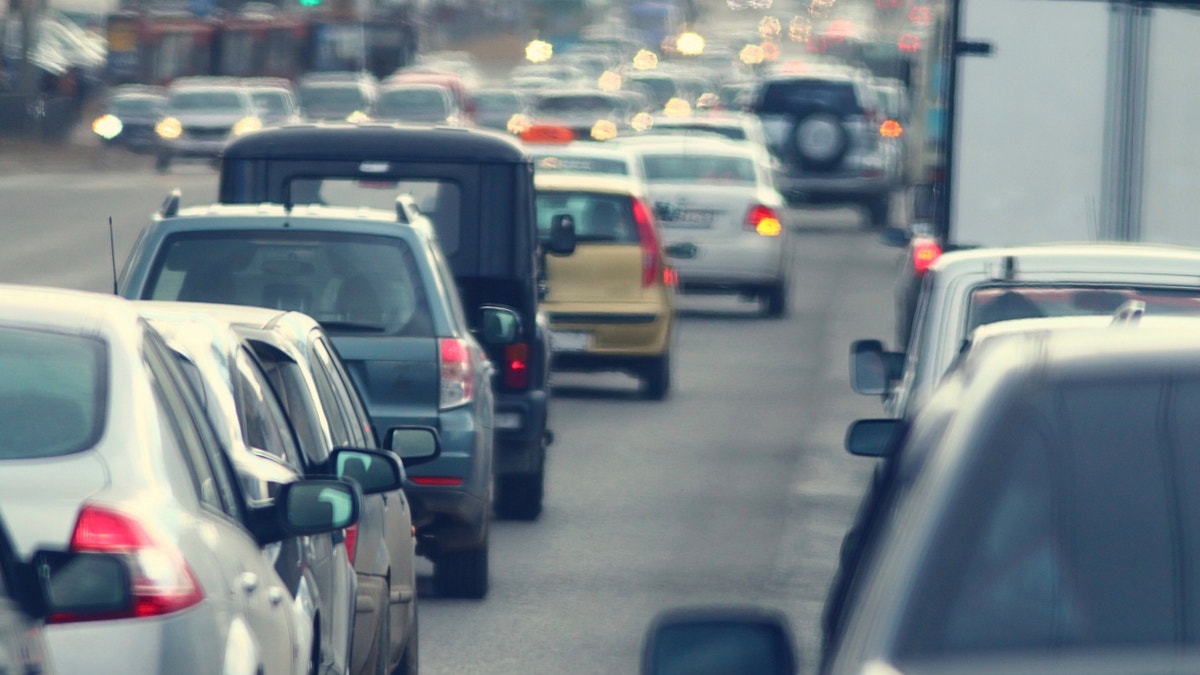
traffic jams in the city, road, rush hour (iStock)
When older drivers stop getting behind the wheel, they may be more likely to feel depressed and to develop other health problems than their peers who remain on the road, a research review suggests.
Giving up the car keys was linked to an almost doubled risk of depression, the analysis found, a connection the researchers believe might be at least partly due to the social isolation or lack of independence that can ensue when elderly people can no longer get around by car.
"The decision to stop driving is not trivial but has significant implications for the patient's health, well-being and life expectancy," said senior study author Dr. Guohua Li of the Mailman School of Public Health at Columbia University in New York City.
There are 39.5 million adults aged 65 and older in the U.S., and most have driver's licenses, Li and colleagues report in the Journal of the American Geriatrics Society.
Because driving requires good vision and reflexes as well as decent physical and mental health, getting behind the wheel may become unsafe for some older individuals, the authors note.
For their new research, they reviewed 16 previously published studies examining a range of medical outcomes in people 55 and older who stop driving.
A pooled analysis of results from five of the studies found former drivers were 91 percent more likely to experience depressive symptoms than their peers who remained on the road.
Older adults who stopped driving were also more likely to report poor health, according to four studies that looked at results from quality of life surveys.
One Finnish study, for example, found that 59 percent of drivers rated their health as good, compared with just 43 percent of ex-drivers. But it's possible the drivers had stopped driving because of poor health, the authors note.
Five studies found declines in physical health linked to driving cessation, although in three of these it's possible medical problems forced people off the road.
Some studies also linked driving cessation to declines in social health, which appeared more pronounced for women than men. One of these studies, for example, found ex-drivers had a 51 percent reduction in their social network of friends and relatives over 13 years.
Two studies linked driving cessation to mortality. One found ex-drivers four to six times more likely to die over three years than continuing drivers, while the other found the five-year mortality risk 68 percent higher for non-drivers.
None of the studies were designed to show whether giving up driving caused the problems, or vice versa.
Another limitation is that the studies used a wide variety of measures to assess health and often relied on surveys or symptoms reported by patients, the authors note.
All but one of the studies exploring the connection between depression and driving cessation was based on self-reported symptoms, not a clinical diagnosis.
The findings highlight the need for more research to pinpoint how taking car keys away from elderly adults may influence both physical and mental health, the authors conclude.
"We do not know how much the observed declines are due to driving cessation versus the extent that the physical and mental declines themselves contributed to driving cessation in the first place," noted Raymond Bingham of the University of Michigan Transportation Research Institute in Ann Arbor.
A sudden change in health, a stroke, or a more gradual shift in driving abilities all might signal the right time to drop driving, Bingham, who wasn't involved in the study, added by email.
When that time comes, maintaining mobility and social connections may help avert depression or other adverse health effects, Bingham added.
If cessation of driving increases social isolation and access to goods and services, "then it's no surprise that health declines follow," Bingham said.
The analysis was funded in part by the AAA Foundation for Traffic Safety and the U.S. Centers for Disease Control and Prevention.